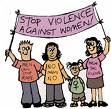People were made to believe there were no poor whites during apartheid, President Jacob Zuma said on Tuesday.
"The previous government did not want to acknowledge that there were whites who were poor. It was psychology and propaganda," Zuma told hundreds of people at the Bethlehem informal settlement in Pretoria West, home to a poor Afrikaner community.
He spoke after the trade union Solidarity's deputy general secretary Dirk Herman related how it was almost politically incorrect to talk about "white poverty".
"White poverty is a silent poverty. People seldom talk about it. The time has come to break the silence," he said to cheers and applause.
He criticised affirmative action, saying white children faced discrimination because of their race.
"There is no moral justification for excluding those people from empowerment.
"Zuma said he still needed to "take him on" regarding affirmative action, but that the government would not allow anyone to oppress another group.
"We should not create an impression that we are excluding other people... in working together we can help a great deal to remove that perception. The strength of the nation lies in unity.
"This visit, under the auspices of Solidarity's Helping Hand fund, was aimed at discussing the poor community's problems with Zuma.
Zuma said his first visit to the area in 2008 was an eye-opener for most South Africans."
People saw for the first time that there were poor whites."He said it was the government's duty to ensure services were provided for all South Africans, regardless of religion, colour, race or creed.
People from several informal settlements in Pretoria filled a large white tent to listen to Zuma. He addressed the crowd from a podium in his black suit, while members of his Cabinet sat on a stage behind tables draped in Solidarity's orange and green colours.
Zuma said he was happy that his visit with his Cabinet came just days before Easter, one of the holiest times of the year for Christians.
"For the poor, the sacrifice is not restricted to the month of Lent, but is a cross they bear daily. This is what informed our visit here today.
"He began his speech joking about how he came to learn to speak Afrikaans, which left the multi-racial crowd in stitches.
"I do not want to hide behind policies and reports. I want to hear first hand and indeed I have heard," he said.
"He is bringing us hope in the area and in South Africa as a whole," said Ria Nel, who runs a soup kitchen for Bethlehem residents.
"From his visit, we know he will open doors because he is in the right position and has knowledge," she said.
Some of the concerns raised on Zuma's previous visit included housing, water, electricity medical care, social security and unemployment.
Rina Vry, 78, had her old age grant rejected twice in previous years. She was then told her last application to the South African Social Security Agency had been lost.
Solidarity's Helping Hand fund said it was inundated by complaints by the elderly about old age pension applications being repeatedly denied. Tents were set up on Tuesday to register those that qualified.
Tshwane mayor Gwen Ramokgopa and Gauteng premier Nomvula Mokonyane also addressed the crowd, switching from English to Afrikaans and promising to provide the necessary services.
Ramokgopa said some families had been given title deeds since Zuma's last visit. They were working with the relevant department to sort out problems related to social grants.
Some 13 houses were already receiving 100 KW free electricity and 12 litres of water free each month. A mobile clinic came once a month.
"We will work with you to ensure that where there are blockages we unblock," said Ramokgopa.
Mokonyane said: "We want to build a non-racial South Africa.
"About 2000 mixed residential units would be built in Lady Selborne for the poor. A contractor had already been appointed.
"Your life must change for the better, we want to de-racialise South Africa.
"Zuma enjoyed some potjiekos at one of the houses before he left. This was one of the reasons he was always encouraged to visit, he said.
The crowd formed long queues to get their lunch, hot dogs and snack bars, before leaving in buses. Those living around Bethlehem walked home.
- Sapa

























No comments:
Post a Comment